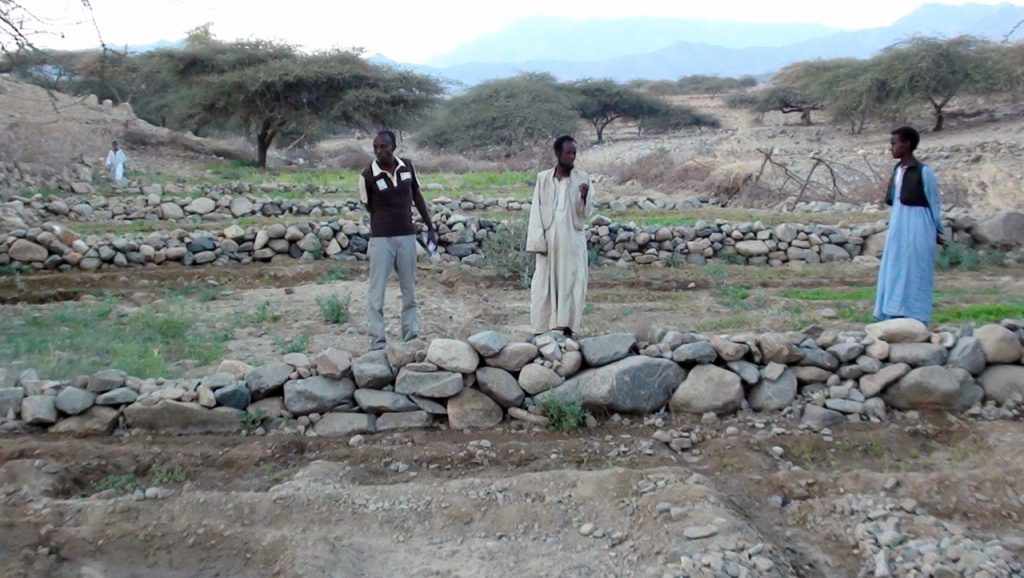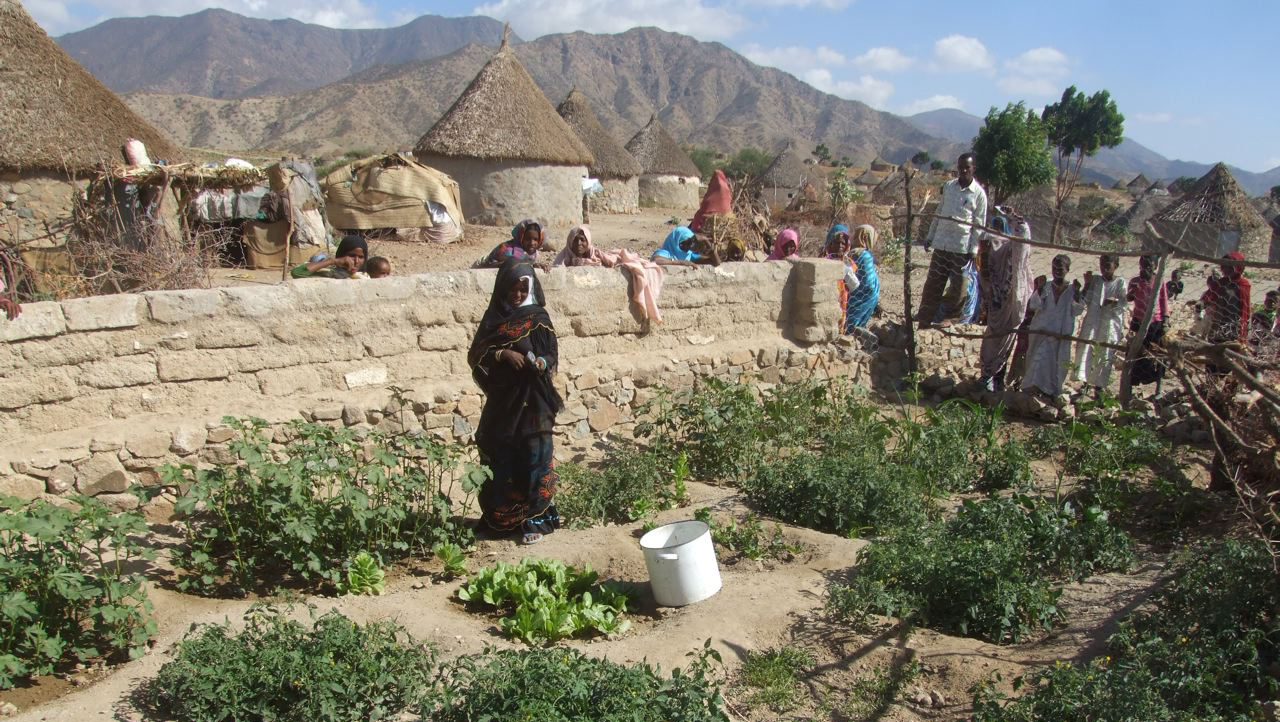Access to water is a fundamental requirement for a decent life and for stable socioeconomic development. This is the principle governing the activities of the WaterFoundation in the world’s poorer regions, especially in Africa, with the aim of providing people with a sufficient supply of clean drinking water, and of preserving biological diversity and protecting the climate.
Reforestation projects and the terracing of fields to prevent soil erosion, together with sustainable irrigation and cultivation, help to preserve the basis of life for humans and animals. In addition to financial, technical and practical support, the transfer of know-how is especially important to maintain the results achieved so far. Schools have an important part to play here in promoting ecological literacy.
Greening Anseba
Deforestation and soil erosion are the main causes of desertification in in the region of Anseba in northern Eritrea. The objective of the Greening Anseba project was to protect biodiversity in the long term and to maintain the contribution of woodlands to the ecosystem in four conservation areas.
Since 2016, 50 000 trees have been planted with the support of local residents in an area west of Keren near the Senkil mountains. Fifteen retention dams have also been built, terraces have been constructed, and 400 hectares of land have been fenced in. The Ministry of Agriculture recently issued a declaration making the area part of a large nature reserve, which is guarded by wardens and closed to people and animals.
The project, carried out with the support of the Archdiocese of Munich and Freising and the Catholic Eparchial Secretariat Keren, was successfully concluded in December 2018.
Green Clubs
The first Green Clubs were initiated in 1992 by the Eritrean Ministry of Agriculture to foster environmental awareness among schoolchildren. They created vegetable gardens and planted trees. The WaterFoundation has been supporting the Green Clubs since 2012 by providing gardening tools such as spades, hoes and watering cans. Children active in the Clubs are rewarded for their work with solar lamps and bicycles donated by sponsors. There are now some 500 Green Clubs at state schools, and they have become important multipliers of knowledge.
The Clubs are run by teachers and water experts, who provide the children with information about gardening, water collection, and the improvement of water and soil protection. The Water Foundation has produced a leaflet (with a print run of 10 000 copies) on the subject of water, which is displayed in the Green Clubs and distributed by volunteers to schoolchildren, teachers, and villagers, to enhance awareness of the importance of water as a resource.
The leaflet is fully illustrated to ensure that the information is accessible to those who cannot read.
Green Villages
The Green Villages project has made significant improvements to the living conditions and the food situation of 35 villages in the Anseba region of Eritrea. Over 36 000 people have benefited from the program.
The Green Clubs (see above) have helped to plant 22 vegetable gardens and 6 600 vegetable and fruit tree seedlings. They have also provided 200 donkeys as water carriers, and distributed 260 goats and 25 beehives to women living in poverty. Four rainwater collection systems have been constructed, four wells have been repaired and a number of solar-powered water pumps have been installed. These initiatives have made it possible to cultivate larger areas of land and produce more food. Several hundred women now have opportunities to earn a living, by selling water, honey, fruit and vegetables, and by breeding donkeys. Some 1 000 people in remote villages without electricity have been provided with solar lamps, and 650 families currently benefit from new, energy-saving and low-emission ovens to bake the flatbreads that are part of their staple diet.
The project, launched in 2015 with generous support from the Federal Ministry for Economic Cooperation and Development, and carried out in cooperation with the Catholic Eparchial Secretariat Keren, was successfully concluded at the end of 2018.


